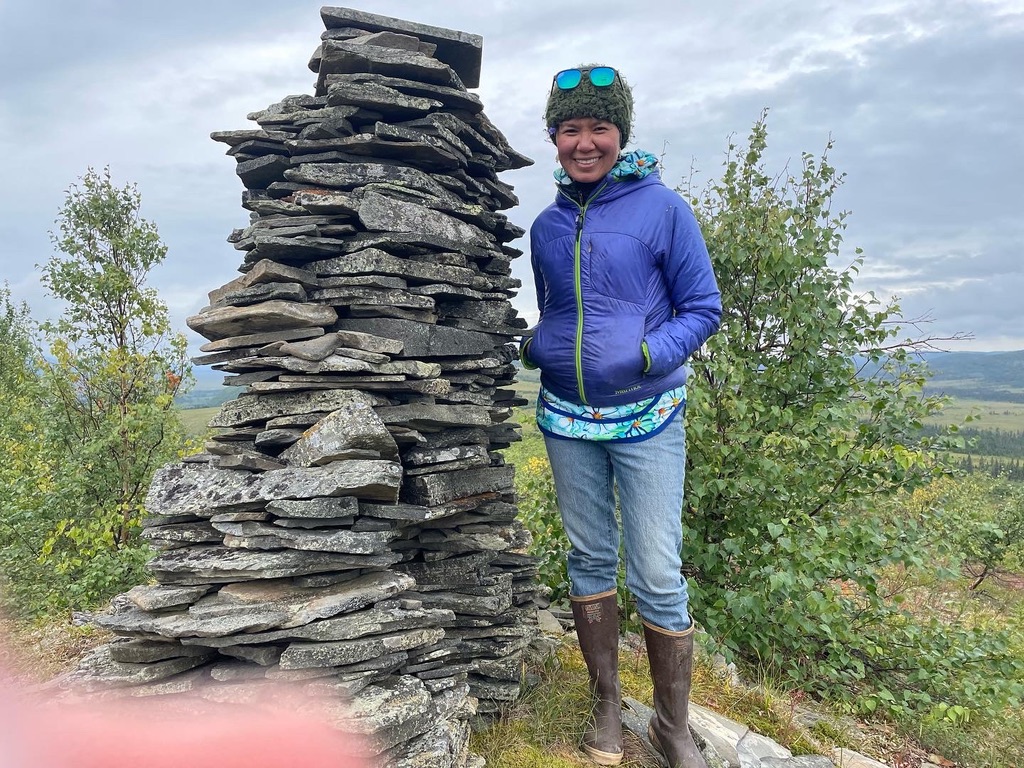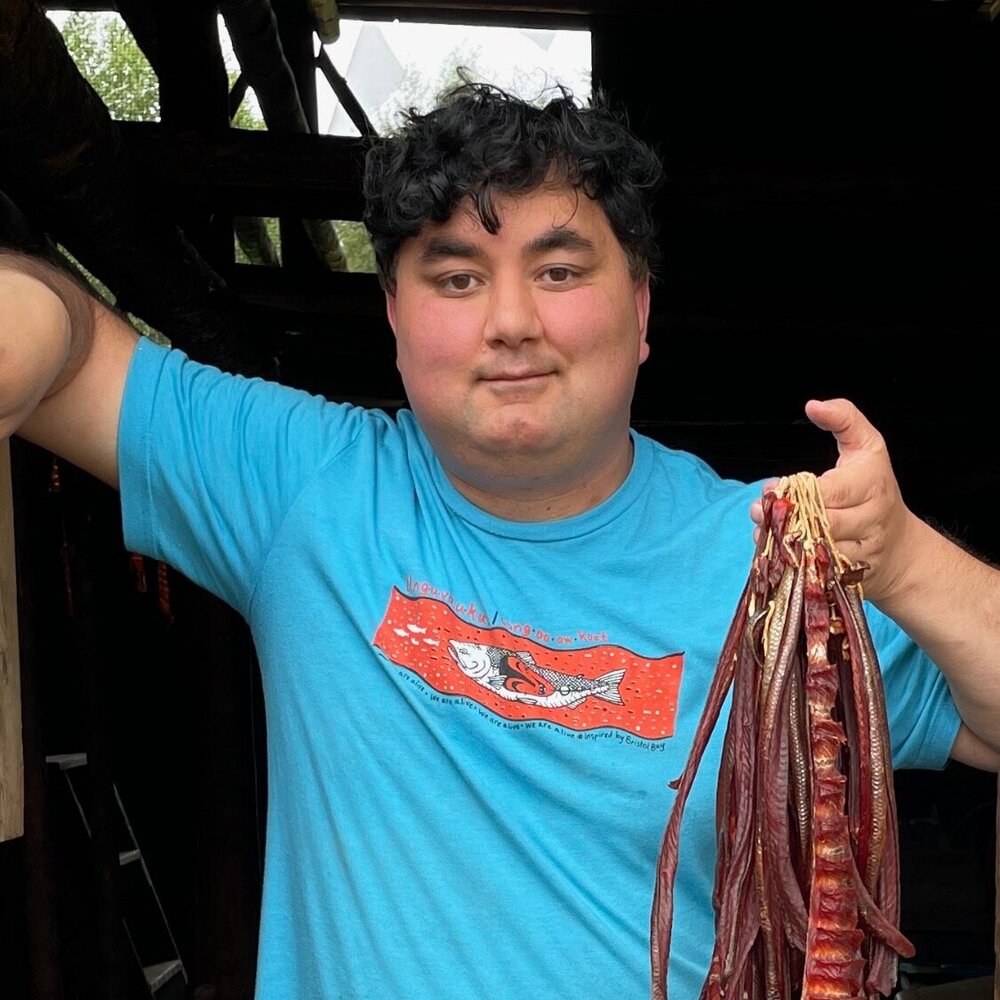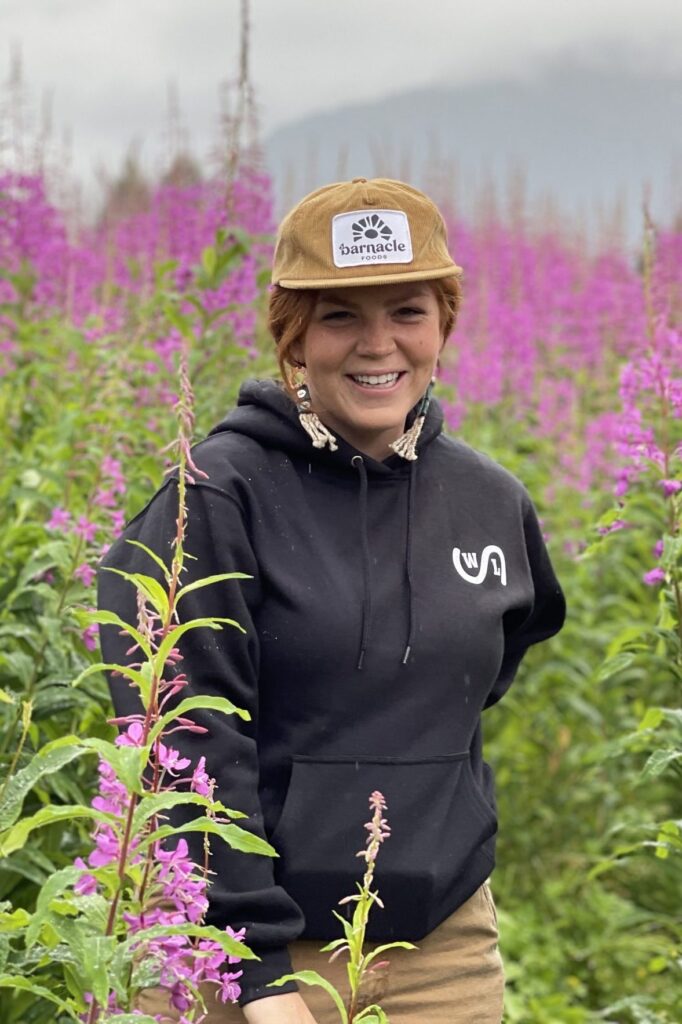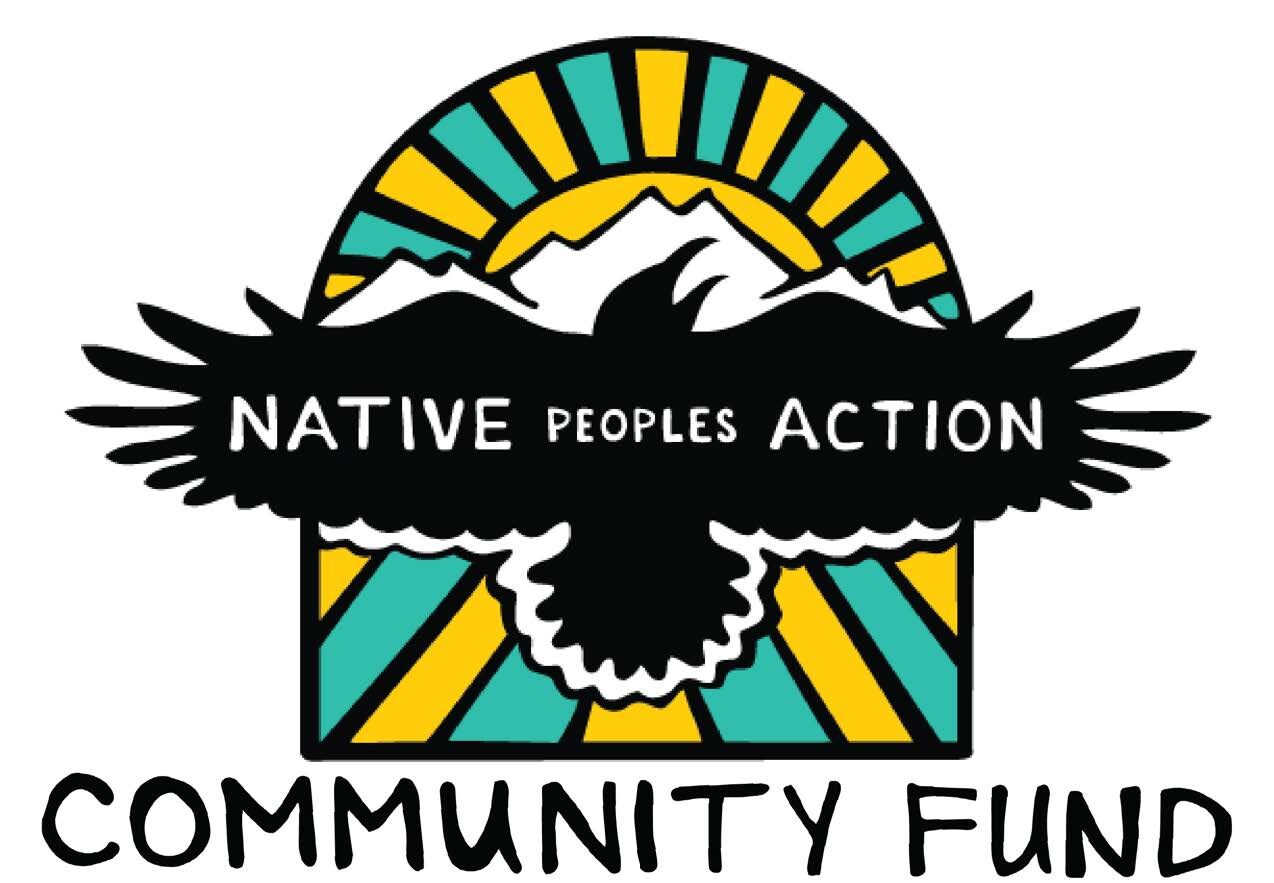
Native Peoples Action Community Fund was founded by a group of 15 volunteers who came together and began grassroots organizing in 2016, and then decided to incorporate to build a vehicle through which their vision could be driven. These statewide volunteers lead the advisory committee and board of directors and include Indigenous artists, attorneys, university professors, tribal chiefs, grassroots organizers, legislative staffers, social justice warriors and land/water protectors who proactively and progressively work together for a healthy, happy, equitable and sustainable Alaska.
STAFF

Laureli Ivanoff, Inupiaq, and Yup’ik, Executive Director
laureli@nativepeoplesaction.org
Laureli Ivanoff, Inupiaq, and Yup’ik, lives in her home community of Unalakleet where she was raised by her parents, Herb and the late Lena Ivanoff. Laureli previously worked in communications in the fisheries realm where she came to understand management processes, affirming her desire to write about and advocate for a way of life living in a direct relationship with the land and waters surrounding her home. A former radio journalist, Laureli has a regular column with High Country News that explores “the seasonality of living in direct relationship with the land, water, plants, and animals in and around Uŋalaqłiq (Unalakleet).” She has been published in The New York Times, Anchorage Daily News, Outside Magazine, and various publications with the intent to bring representation to a way of life integral to who we are as Native peoples. Laureli received her Bachelor of Arts degree in Journalism at the University of Alaska Fairbanks and her Master of Fine Arts degree in Creative Writing from the Institute of American Indian Arts. She enjoys being out on every nice day with her extended family, harvesting and eating good food.

Craig K. Chythlook – Yup’ik, Fisheries Policy Director
craig@nativepeoplesaction.org
Craig Chythlook is Yup’ik, originally from the Bristol Bay region in southwest Alaska. Craig’s parents are Joe and Molly Chythlook from Dillingham, AK. Craig has spent his life fishing for salmon on the waters of Bristol Bay. Craig’s current work is looking at what evaluation criteria are used to measure success while observing salmon, salmon management, and how to utilize Indigenous values and place-based knowledge into resource management decision-making. Craig graduated from the University of Alaska Fairbanks with a business administration degree and a minor in rural development. While attending UAF, Craig spent three and a half years participating in undergraduate research studying how better access to water utility services impact subsistence activities. Craig’s research interests include how Western fisheries policy and management can better include Indigenous and place-based knowledge into state and federal decision-making spaces, regarding salmon/resource management.

Krissa Huston – Tlingit, Voter and Community Engagement Manager
krissa@nativepeoplesaction.org
Krissa Huston, Tlingit/Filipina/White, is originally from Petersburg (Séet Ká Kwáan) where she was raised by her mother Tiana Duke and late father Steven Davis (Norwegian). She is the great granddaughter of Marie James and granddaughter of Pauline Young of the Thunderbird House, Wooshkeetaan Yadi clan. In May of 2024 she graduated from the University of Maine with her masters in Marine Policy. During her program she focused on the role of the global seafood market, fisheries policy, and community-well being in fisheries management decisions for Pacific Herring. Krissa is passionate about protecting Indigenous foodways through localized food systems that support equitable access, Alaskan Native culture, and community well-being. She is an avid learner who enjoys spending her time harvesting with her family on the beach and connecting with the land and waters through hiking, climbing, and swimming.
BOARD OF DIRECTORS

La Quen Naay Liz Medicine Crow, Tlingit/Haida, President
La quen náay Kat Saas is from Keex Kwaan (Kake), Alaska. On her Haida side she is Eagle Tiits Gitee Nei, Hummingbird. On her Tlingit side she is Raven Kaach.adi, Fresh Water-marked Sockeye Salmon. Integrating Native knowledge and values into organizations, governance mechanisms, and everyday life is a primary passion and responsibility she has pursued through her education and career. Liz received her BA (BFA Equivalency) from Fort Lewis College in Durango, Colorado, and her professional degree from Arizona State University College of Law, graduating with a Juris Doctorate degree and a Certificate in Indian Law. She currently serves as the President/CEO of First Alaskans Institute

Jonathan Tullek Samuelson – Yup’iaq & Dene, Vice President
Jonathan Tullek Samuelson (Yup’iaq & Dene), was raised on the banks of the Kuskokwim River alongside his siblings, cousins, and fish. His family ties span the watershed, and his parents are Debby Hartman (Vanderpool) and Sam Samuelson. Driven by a passion for people and cross-cultural sharing Jonathan’s work has always centered around making connections and helping others realize the potential of tools they already have. He currently works for The Kuskokwim Corporation whose vision is a sustainable, collective future. Jonathan is a citizen of the Native Village of Georgetown, where he serves on the tribal council as well as their appointed commissioner to the Kuskokwim River Inter Tribal Fish Commission (KRITFC). As the current chair of KRITFC, he aims to elevate tribal voices in fisheries stewardship and weave together ways of knowing. He also works toward systems change as an advisor to the Tamamta and Indigenizing Salmon Science & Management programs through the University of Alaska Fairbanks. Jonathan enjoys time on the land, binging a good tv show, and stringing together words into poetry.

Brooke Woods, Athabascan, Member
Brooke Woods is Koyukon from Rampart and currently lives in Fairbanks, Alaska with her children. She attends the University of Alaska Fairbanks, continuing her education after receiving a Tribal Management Associate of Applied Science degree. She works as an Arctic Policy Coordinator, serves as Executive Chair for the Yukon River Inter-Tribal Fish Commission and advises the Indigenizing Salmon Management project. She and her children enjoy spending time in Rampart fishing, gathering, and hunting.

Marina Anderson, Haida and Tlingit, Treasurer.
Marina Anderson is a Haida and Tlingit harvester and advocate for our ways of life. Marina is from the Taakw.aaneidi clan from Heinya Kwaan and is from the Sculpin House. Marina grew up on Prince of Wales Island where harvesting traditional things out on the lands and waters was her school. Marina has spent time on her tribal council, is on the board of directors for her ANC village corporation, and most recently in her professional life Marina has transitioned from being the tribal administrator for the Organized Village of Kasaan to be the deputy director for the Sustainable Southeast Partnership.
STEERING COMMITTEE

Andrea Akall’eq Burgess, Yup’ik
Andrea Akall’eq Burgess, is a community activist from Bethel, Alaska now living and working on the lands of Kānaka ʻōiwi (Native Hawaiians). She is a Yup’ik Tribal citizen of the Native Village of Kwinhagak. Andrea is a co-founder of Native Peoples Action Community Fund where her role is to advance Indigenous ways of being and knowing. Andrea is Company Owner of With Real People LLC, a consulting and production firm based in Alaska and Hawaii. She is also Global Director of the Conservation in Partnership with Indigenous Peoples and Local Communities program at The Nature Conservancy. Andrea has a bachelor’s degree in government/political science from Georgetown University and spent much of her career working for Alaskans in Congress on Capitol Hill.

Saagulik Elizabeth Hensley, Iñupiaq
Saagulik focuses her practice on meeting the unique legal needs of Alaska Native corporations, tribes and tribal nonprofit health and social service organizations. She maintains a general counsel practice providing advice in contract strategy, negotiation and enforcement; employment law; investigations and compliance; grants management; conflicts of interest and other ethics standards; and governance. Saagulik has been active in Alaska and Native American affairs for many years. Her experience includes working as a legislative aide with the Alaska State Legislature, as a staff attorney and public policy liaison with an Alaska Native (ANSCA) regional corporation, and as general counsel for a 600-employee regional tribal nonprofit corporation. She served as senior policy advisor at the United States Department of the Interior Office of the Assistant Secretary for Indian Affairs and has provided international human rights law support to the United Nations Special Rapporteur on the Rights of Indigenous Peoples through coursework and a fellowship.

Ruth Miller, Dena’ina Athabaskan and Ashkenazi Russian Jewish
Ruth is a Dena’ina Athabaskan and Ashkenazi Russian Jewish woman, raised in Anchorage, Alaska. She is a member of the Curyung Tribe, and also has roots in Bristol Bay, where her family descended downriver after leaving the Lake Iliamna region. She is a recent graduate from Brown University, built on occupied Wampanoag and Narragansett lands, and received a BA in Critical Development Studies with a focus on Indigenous resistance and liberation. She has worked many years towards Indigenous rights advocacy and climate justice in Alaska, as well as in Rhode Island and the south of Chile. She centers themes of wellness and community care, and is thinking a lot about growth and regeneration and imagination in our activism work. Ruth also does International Indigenized climate justice work with the United Nations Association and SustainUS. Most of all, she loves singing as her Grandma Ruth did, practicing traditional beadwork with her mother late at night, slowly discovering her Dena’ina language, and building radical communities of love!
